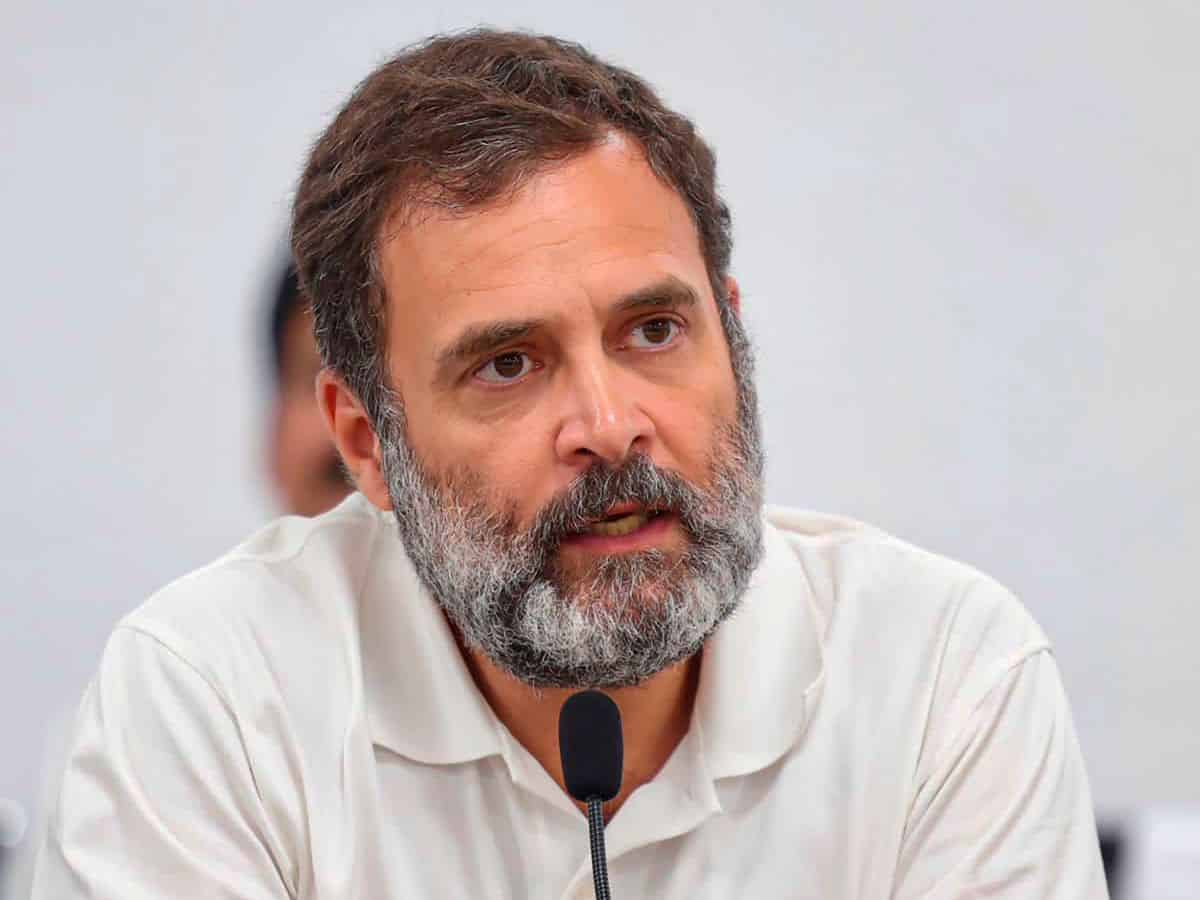
Congress leader and Former MP Rahul Gandhi reiterated before the Supreme Court on Wednesday that he is not guilty of criminal defamation for his comment, “All thieves have Modi surname.”
Rahul stated that he would not apologize for his statement and that if he wanted to compound the offense, he could have done so much earlier.
Gandhi’s affidavit to the Supreme Court accused plaintiff Purnesh Modi of using slanderous language like ‘arrogant’ to characterize the former Congress head solely because he refused to apologize.
Gandhi, filing an affidavit before the top court said that he has always maintained that he is not guilty of the offence and that the “conviction is unsustainable” and if he had to apologise and compound the offence, “he would have done it much earlier”.
The complainant, Gujarat BJP MLA Purnesh Ishwarbhai Modi, in his reply before the apex court, used slanderous terms such as ‘arrogant’ to describe him only because he has refused to apologise, stated Gandhi’s affidavit.
Using the criminal process and the consequences under the Representation of Peoples Act to “arm twist” Gandhi into apologising for no fault, is a gross abuse of the judicial process and ought not to be countenanced by this court, he added.
The affidavit further stated that Gandhi has an ‘exceptional’ case considering the offence being a trivial offence, and the irreparable harm that accrues to him as an elected MP.
On the other hand, there is no prejudice caused at all to the complainant. It is therefore prayed for that the conviction of Gandhi be stayed, enabling him to participate in the ongoing sittings of the Lok Sabha and the sessions thereafter,” Gandhi said.
The complainant in the Rahul Gandhi’s criminal defamation case in which he was convicted and sentenced to two years in jail by the Surat court over the ‘Modi surname’ remark, on Monday told the Supreme Court that the attitude of the Congress leader reveals arrogant entitlement and he doesn’t deserve any relief in form of stay on his conviction.
Earlier, the apex court sought a response from the Gujarat Government and the complainant on an appeal of Gandhi challenging the Gujarat High Court order which declined to stay his conviction in the criminal defamation case.
After his conviction in the case, Gandhi was declared disqualified as MP from Kerala’s Wayanad on March 24 following notification of the Lok Sabha Secretariat.
Gandhi was sentenced to two years’ imprisonment which disqualified him as an MP under the rigours of the Representation of People Act.
Approaching the top court, Gandhi also sought a stay of the Gujarat High Court verdict which upheld his conviction. He said the High Court verdict “has no parallel or precedent in the jurisprudence of the law of defamation”.
He contended that it was “not only curious but extremely significant, indeed sinister, that all earlier cases, including the one regarding the present speech, were filed by members and office bearers of the ruling party”.
It was submitted that the surname ‘Modi’, in different parts of the country, encompassed different communities and sub-communities, which usually have no commonality or uniformity at all. The Modi surname belonged to various castes.
The complainant, Gujarat BJP MLA Purnesh Ishwarbhai Modi who simply has a ‘Modi’ surname, did not prove that he was prejudiced or damaged in any specific or personal sense, the plea filed in the apex court added.
Gandhi’s plea said, “Unprecedentedly, in a case of criminal defamation, a maximum sentence of two years has been imposed. This itself is a rarest of rare occurrence.”
The High Court on July 7 affirmed the decision of a Gujarat Sessions court, which had refused to put on hold a magisterial court order on March 23 convicting Gandhi and handing out the maximum punishment provided for criminal defamation under the Indian Penal Code.
Rejecting Gandhi’s plea, the High Court has said that he has been seeking a stay on his conviction on “absolutely non-existent grounds” and a stay on conviction is not a rule but an exception.
In March, the magisterial court had convicted Gandhi for his remarks ahead of the 2019 national polls about the ‘Modi’ surname.
After the magisterial court convicted Gandhi, he approached the Sessions court, which rejected his plea for a stay on his conviction on April 20. Thereafter, he approached the High Court.
The Congress leader was sentenced to two years in jail on March 23 under sections 499 and 500 (defamation) of the Indian Penal Code (IPC) in a case filed by Purnesh Modi.
(With excerpts from ANI)
